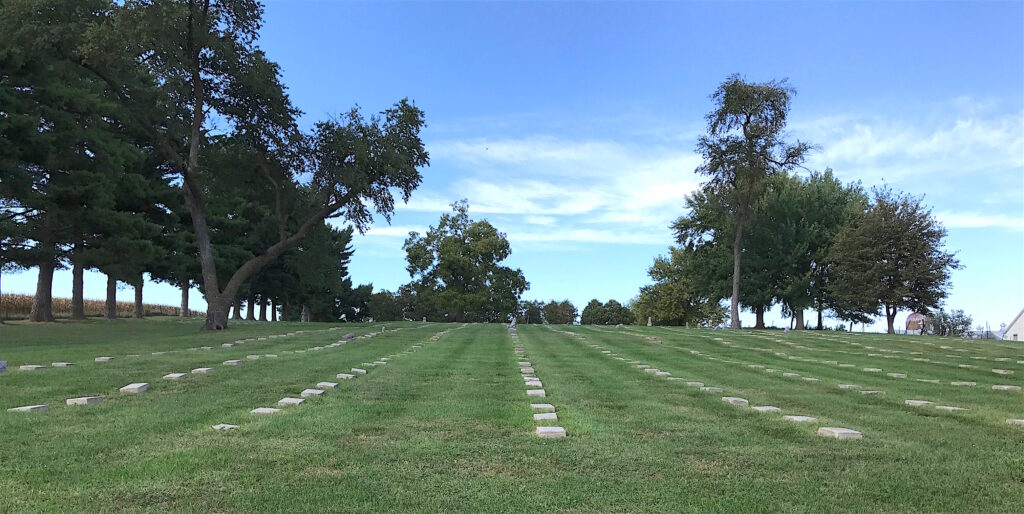Identifying and interring the unclaimed cremains of American Veterans
7/12/2023 Fourteen veterans who are buried Clarinda State Hospital cemetery will finally be given a formal military funeral.
Fourteen veterans who are buried Clarinda State Hospital cemetery will finally be given a formal military funeral.
Like many Iowans, I watched the parades, speeches, fireworks and pageantry of the Fourth of July celebrations and felt a sense of pride in those who helped make America a special country.
I have never served in the military but have a respect for those who have and try to express it to them.
Recently I was asked by Mary Crouse and Colleen Homan, two longtime and hard-working volunteers of the Missing in America Project (MIAP), to assist with something they were working on with local volunteers.
As I understand it, the intention of MIAP is to locate, identify and inter the unclaimed cremains of American Veterans.
I have seen the positive results of their past work and what it can mean to living veterans and their families.
There are times when hundreds of people show up at the long delayed military service and other times when these volunteers are the only ones there.
Their most recent project caught my attention. It is for 14 veterans who were buried but likely never given a formal military funeral.
How could that be?
It was likely not the result of their service rendered but more likely where their lives ended. They died and are buried at the cemetery of the Clarinda State Hospital that opened in 1888.
The facility has gone by many inappropriate names in the past: the Clarinda State Asylum, The Clarinda Asylum for the Insane, Clarinda Lunatic Asylum, and The Clarinda Mental Health Institute.
 It is common to question past generations’ decisions based on information now available, but, even today, many of us need to be reminded that not all veterans’ wounds are physical.
It is common to question past generations’ decisions based on information now available, but, even today, many of us need to be reminded that not all veterans’ wounds are physical.
Real mental health illness has, for many eras, often not been acknowledged or correctly identified by even the professionals of the time.
For those veterans affected by mental health related issues and their families, it is present, and it is real.
Reports as early as 1761 wrote about “nostalgia” among soldiers.
Among those who were exposed to military trauma, some reported missing home, feeling sad, sleep problems, and anxiety.
By the time of the Civil War, “soldier’s heart” or “irritable heart” was a name marked by a rapid pulse, anxiety and trouble breathing.
WWI would bring the term shell shock. WWII, battle fatigue or combat stress reaction. By 1980, PTSD was further defined.
For those veterans of the Vietnam era, the effects of agent orange and burn pits were too long ignored.
On July 22, a total of 14 veterans (eight Civil War, one Spanish American War, one U.S. Coastal Artillery and four WWI) who were buried in the Clarinda State Hospital cemetery will be remembered. Nine of these veterans, as well as their families and friends, have been waiting more than 100 years for them to receive military honors.
We may never fully know what really brought these soldiers there.
Our actions to honor them on July 22 is a public showing to veterans, their friends, their families and all who enjoy the liberties we have in America that we are appreciative of their service and they will never be forgotten. ♦


















